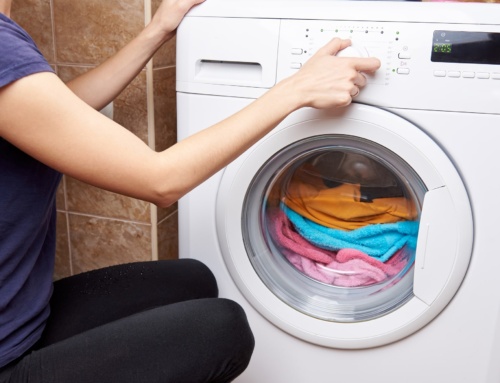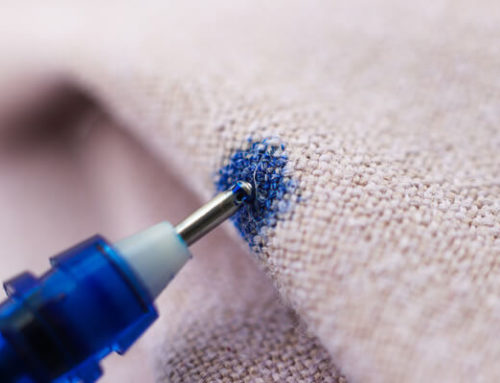When cleaning a domestic kitchen, we come across many different surfaces. Some are more delicate than others. We wouldn’t use the same cleaning products on an oven tray that we’d use on your kitchen taps.
One of the most common questions we’re asked is how to clean shiny surfaces without smearing them or permanently marking the delicate surface. In the kitchen, these surfaces appear on glossy cupboards, splashbacks, halogen hobs and oven doors. We have a number of nifty ways of dealing with these surfaces, and we can also use the same products on mirrors and glass.
What Causes Smears?
We normally see smears on glass, such as oven doors or mirrors. As professional cleaners, we’re often asked which modern glass cleaners are best to prevent streaky marks. In actual fact, any inexpensive glass cleaner will do the job, and you can give your glass a beautiful sparkle by finishing it the old fashioned way: using a scrunched up piece of newspaper. Rub in little circles, but don’t forget the corners or you’ll end up with a porthole effect.
Microfibre cloths are great for cleaning and drying shiny surfaces because they clean deep and don’t leave a smeary track in their wake. If you hunt online you can buy decent sized microfibre cloths for about 70p each. You’ll also find them in your local pound shop. Microfibre cloths are brilliant for worktops and shiny doors.
Finally, you might have seen ‘eraser’ sponges in stores. These are very effective on white surfaces, such as white worktops or white laptops where the palms rest – and in any areas where you can’t use chemicals or large amounts of water. Just dampen the sponge and gently rub. JML make an eraser sponge; again, you’ll also find them in some pound shops from time to time.
What Causes Scratches?
Accidental scratches are generally caused by abrasion. It only takes a tiny grain of sand to make a permanent, unsightly mark on a glass surface under gentle pressure, so we must always take care not to use cream cleaners on surfaces vulnerable to marks. You must also never use rough products like scourers unless you are absolutely sure the surface can cope with the abrasion.
The marvellous, magial microfibre cloth often saves the day again. On very delicate surfaces, make sure your microfibre cloth is completely free of dust that could case fine scratches. Using microfibre, there’s rarely a need to use a huge amount of pressure as you wipe.
Don’t want to buy microfibre? Recycle any old clothing that’s 100 per cent cotton. It’ll also do a great job. Old baby muslins are brilliant for cleaning; you could also turn tea towels into rags, or cut up t-shirts that don’t fit. Remove any discoloured or stained patches, just in case.
What About Vinegar?
The final product in your kitchen cleaning arsenal should be white vinegar. Use it to shine stainless steel, shine mirrors or clean your granite work surface (mixed with a little bicarbonate of soda). You can also mix vinegar with essential oils to make it smell a little more pleasant around the home.


